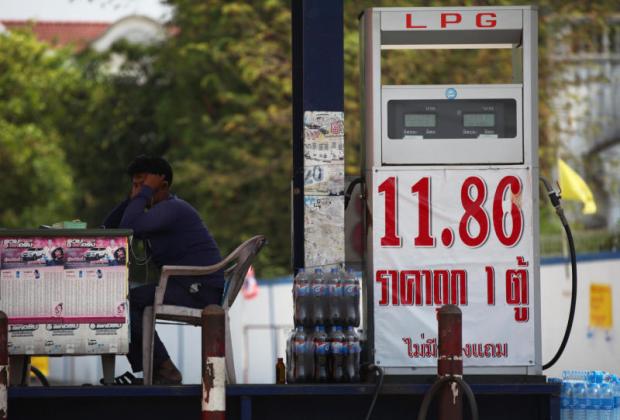
The Energy Business Department has reaffirmed Thailand will stop importing liquefied petroleum gas (LPG) from next month for the first time in eight years because of sufficient domestic supply and falling demand, says Witoon Kulcharoenwirat, the department's director-general.
After importing LPG since 2008, Thailand will stop from next month as demand for the gas in the transport and petrochemical sectors dropped substantially.
"There is sufficient imported LPG left over in PTT's storage tank in Si Racha," said Mr Witoon.
Thailand switched from being an exporter of LPG to an importer in 2008 when the government started subsidising gas prices, fixing the price at US$333 a tonne although global LPG prices moved in a range of $450-520 a tonne. This pushed local demand for the gas higher.
A price below market value encouraged local transport business operators to start shifting from diesel to LPG and compressed natural gas, he said.
Imports of LPG rose to a record high in 2013 of 180,000 tonnes per month before starting to slow down in recent years.
The drop in LPG consumption was largely because of falling demand in the petrochemical sector as most producers switched from using propane, an LPG by-product, as their feed stock to naphtha, a petroleum by-product that became much cheaper in line with collapsing oil prices.
When oil prices reached record highs in 2008, LPG imports hit record highs almost every month, forcing PTT Plc, the country's sole LPG importer, to invest up to 10 billion baht to double its storage capacity to 250,000 tonnes per month.
As domestic demand for the gas fell sharply, PTT planned to use the inventory for re-export to the greater Mekong region.
Saran Rangkasiri, PTT chief operating officer overseeing the downstream business unit, said PTT is waiting for Thai policymakers to grant it a licence to start re-exportation.
The policy to start floating the price of LPG was started just as global oil prices collapsed in 2014, encouraging motorists to return to oil, and cutting demand for LPG by 12.1% to 2,026 kilotonnes of oil equivalent (ktoe) from 2,304 ktoe the previous year.
In contrast, demand for oil has risen sharply and PTT maintained its plan to expand its petrol stations to 500 branches by 2020, up from 150 last year. This includes stations in Laos, Myanmar and Cambodia.